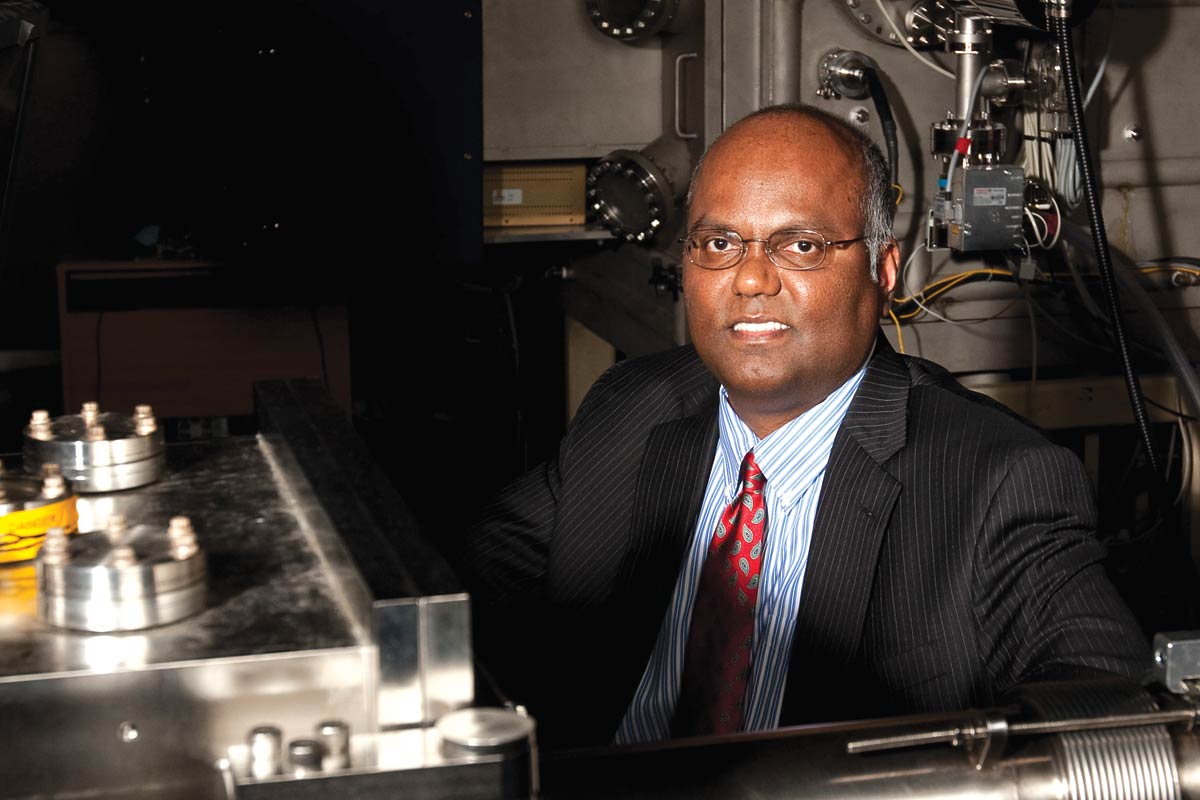Advancing Superconductor Manufacturing

The University of Houston will lead plans for an Advanced Superconductor Manufacturing Institute, aimed at speeding the full commercialization of high-temperature superconductors. Energetics Inc. will support UH in this effort.
Venkat Selvamanickam, M.D. Anderson Chair Professor of Mechanical Engineering at UH, is principal investigator for a $500,000 planning grant from the National Institute of Standards and Technology. The grant will be used to develop an industry-led consortium to address technical obstacles that have limited superconductor manufacturing, as well as to develop a business plan for the institute.
Selvamanickam is also director of the Applied Research Hub at the Texas Center for Superconductivity at UH, which develops high-performance superconducting wire, with support from the U.S. Department of Energy, Office of Naval Research, Army Research Laboratory, National Science Foundation, The State of Texas and industry.
Ramanan Krishnamoorti, acting vice chancellor and vice president for research and technology transfer and chief energy officer at UH, noted the University’s role in fundamental advances of high-temperature superconductors over the past 25 years.
“Under the leadership of Dr. Selvamanickam, with our partners in the Advanced Superconductor Manufacturing Institute, I anticipate a revolution in the scalable manufacturing of low-cost, high-performance superconductors,” Krishnamoorti said.
Lightweight and powerful, superconductor devices are used in energy, health care and transportation, among other uses, and offer advantages over conventional technology, including increased efficiency and reduced greenhouse gas emissions.
Supporters of the proposed institute, including companies prominent in the superconductor industry, spent almost two years laying the groundwork in an effort catalyzed by Rathindra Bose, UH vice president for research and technology transfer.
Selvamanickam said the next 18 months will be used to build a consortium of industry, academia and others who will develop plans to address the roadblocks to low-cost, high-volume production, quality assurance and reliability testing.
His expertise with superconductors can guide the consortium.
“But it’s not what I think is important,” Selvamanickam said. “It’s what industry needs.”
Next Story:
Academia Could Learn From Hollywood
The team structure found in the movie industry may benefit the academic world …